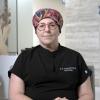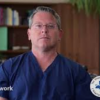The Department of Ophthalmology at the University of Ottawa Eye Institute, the Riverside Eye Care Centre, and the Department of Ophthalmology at the Children's Hospital of Eastern Ontario (CHEO) are renowned institutions dedicated to providing exceptional eye care, conducting cutting-edge research, and educating future ophthalmologists.
As a world-class facility, we are internationally recognized for our commitment to excellence in patient care, advancing the field of ophthalmology through research, and training the next generation of eye care professionals. With a team of over 42 full-time and part-time ophthalmologists and two PhDs, we have a wealth of expertise in various subspecialties.
Our affiliation with the Ottawa Hospital Research Institute and the University of Ottawa's Faculty of Medicine ensures that we remain at the forefront of advancements in ophthalmology. Our facilities are located at The Ottawa Hospital's General Campus, Riverside Campus, and the Children's Hospital of Eastern Ontario, allowing us to serve patients of all ages with specialized care.
We are proud to offer comprehensive eye care services, ranging from routine eye exams to advanced diagnostic and surgical procedures. Our commitment to research enables us to stay at the forefront of technological advancements and treatment options, ensuring that our patients receive the best possible care.
We are dedicated to providing compassionate, personalized care to our patients while striving for excellence in ophthalmic education and research. Through collaboration and innovation, we aim to improve the lives of individuals with eye conditions and contribute to the advancement of the field of ophthalmology on a global scale.
Location
Change Location
Change Location
HealthChoicesFirst will use the location you choose to identify the practitioners that are closest to you.
Please start with the first characters of your current Postal/Zip Code and select a location from the list that is displayed.















Latest Health Talk Comment
Dr. David Maberley
, Ophthalmologist, at Ottawa Hospital Ophthalmology in Ottawa, ON commented on: Eye Health and Night Vision Problems - " Stephanie is a 35-year-old figure skating coach".